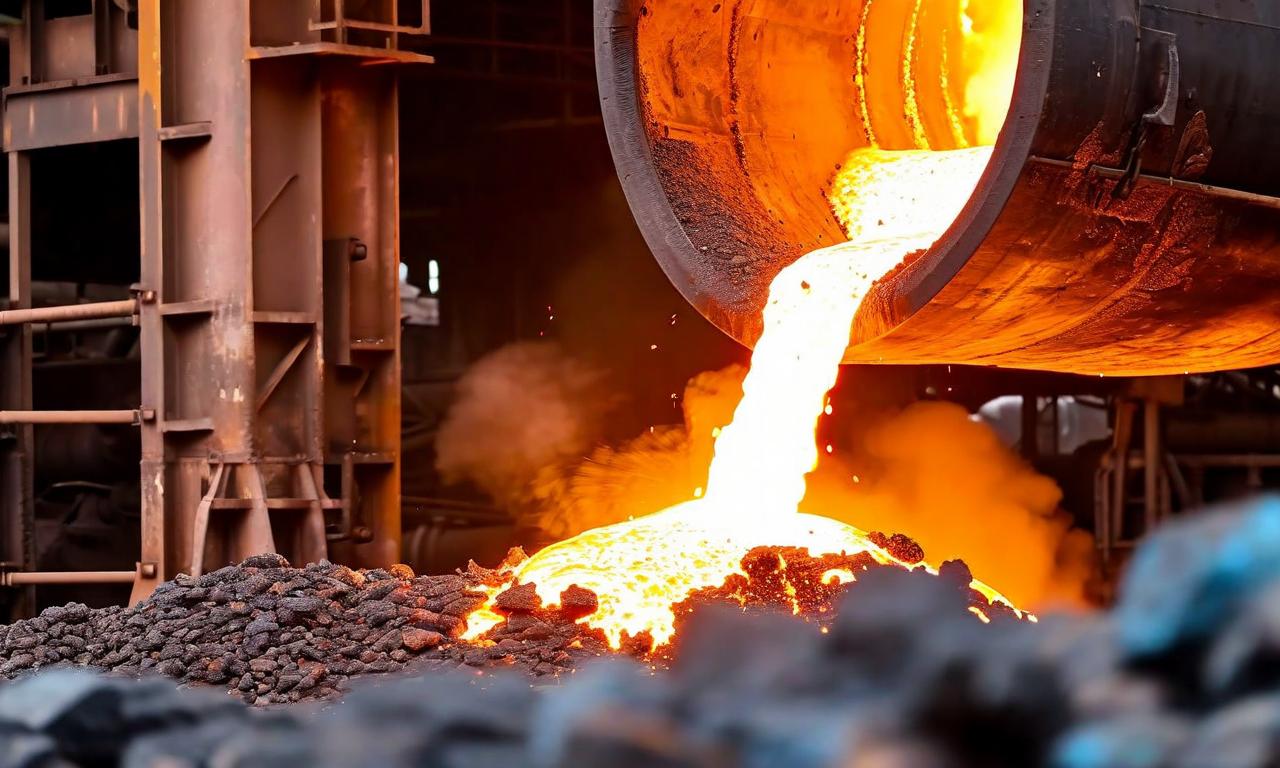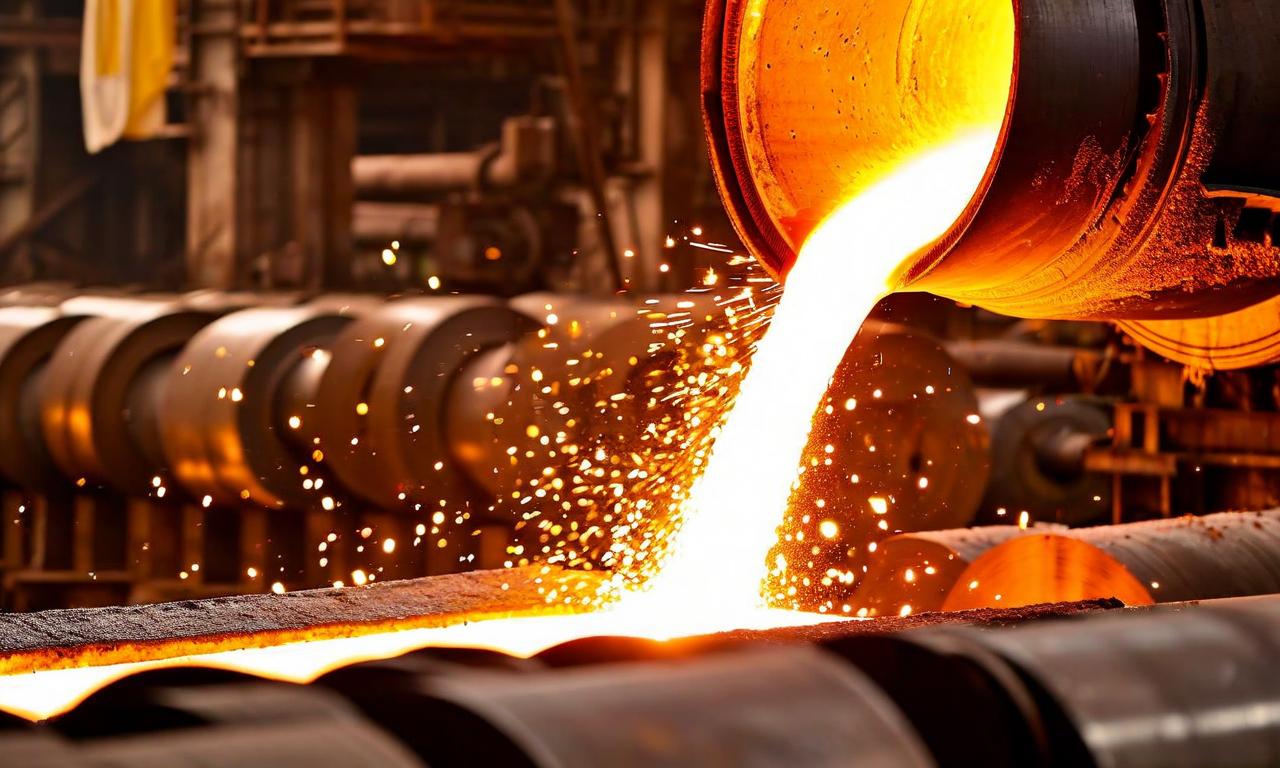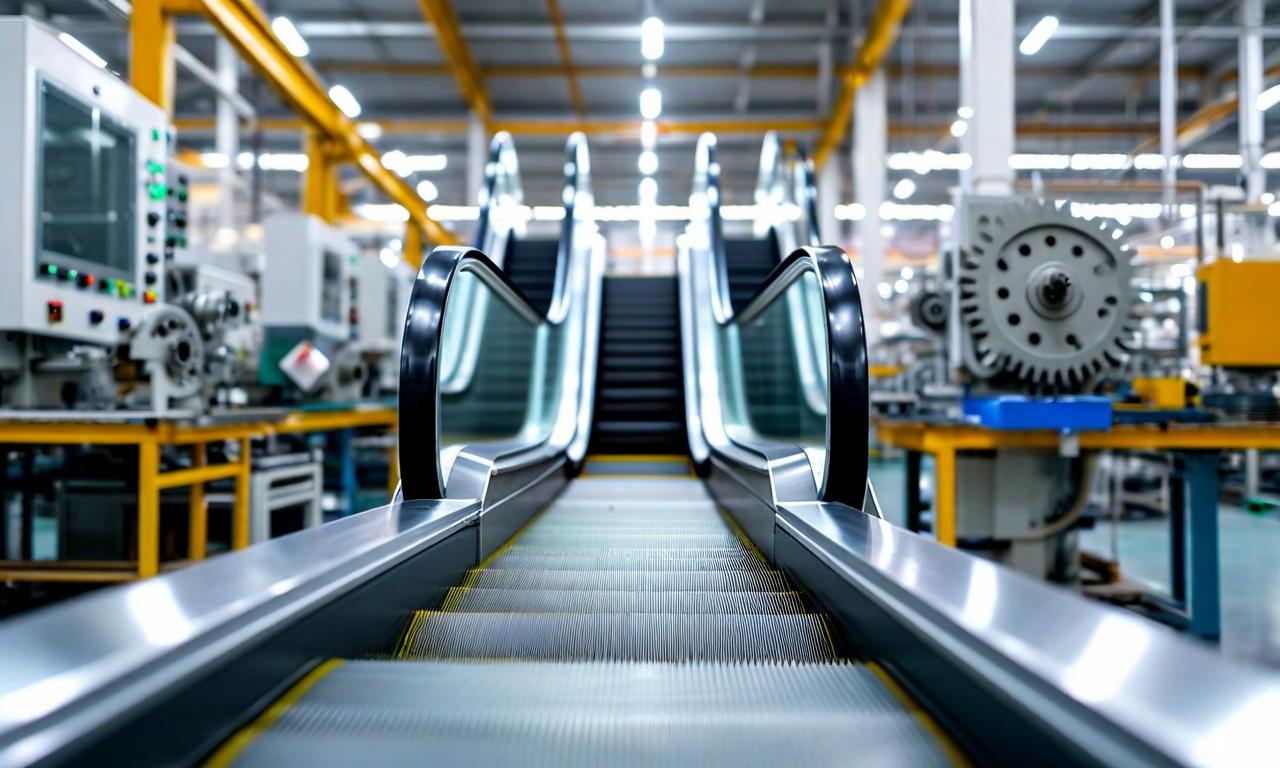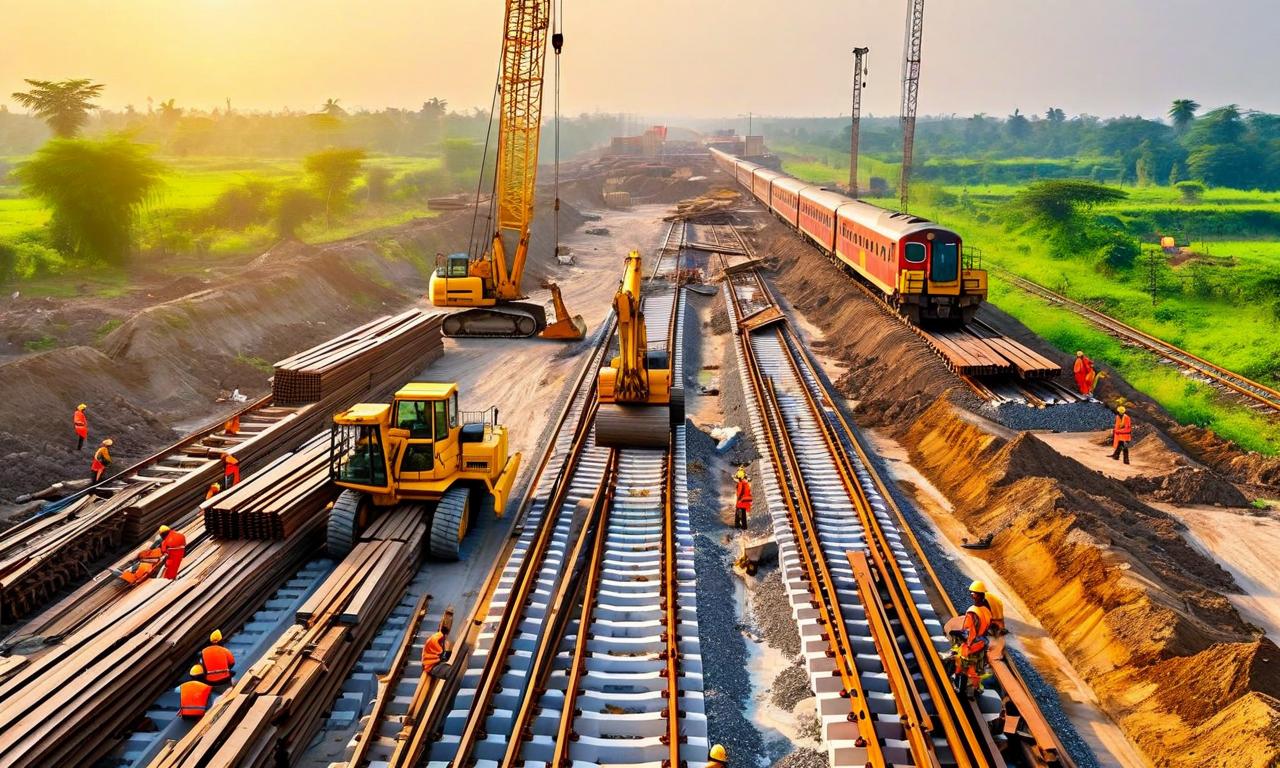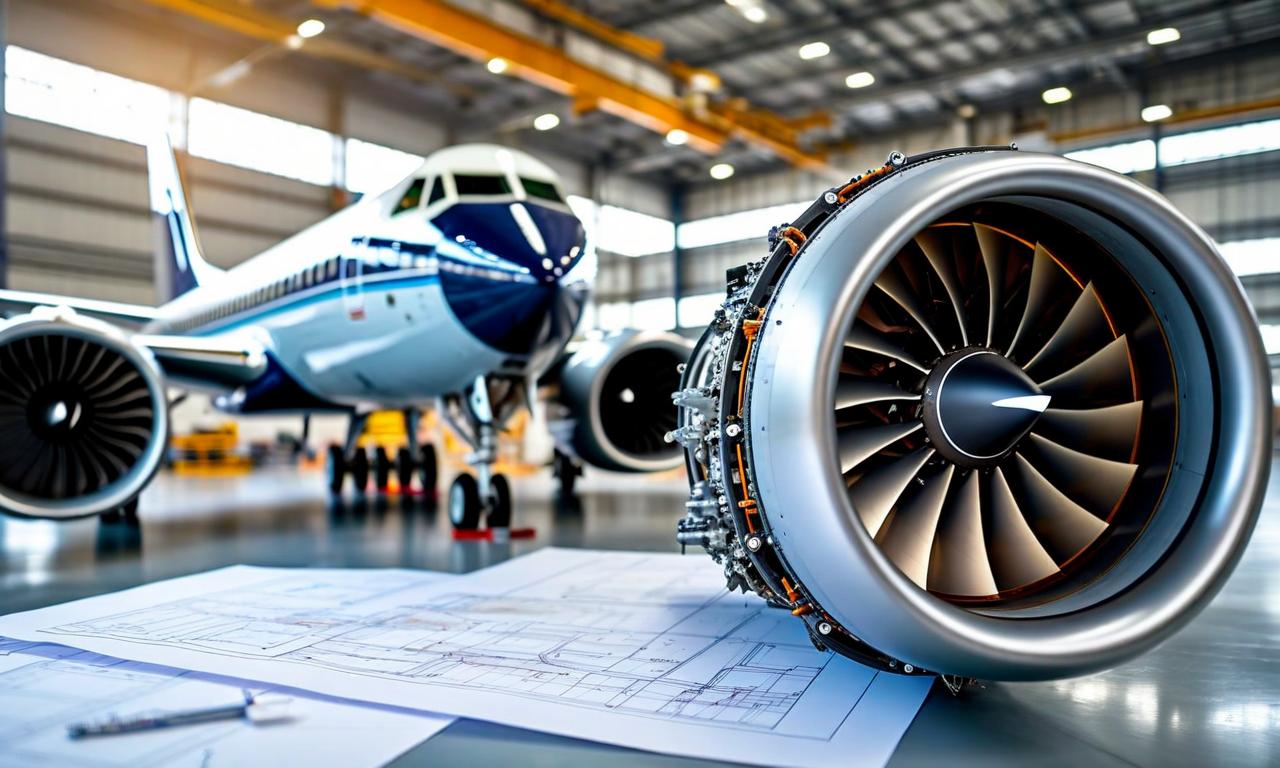India Confident U.S. Tariffs Won't Significantly Impact Steel Industry
India's Steel Secretary expressed confidence that U.S. tariffs would have minimal impact on the country's steel industry. The official cited robust domestic growth as a key factor, suggesting that internal market opportunities provide ample room for steel producers to expand production capacity. This domestic-focused strategy could insulate the industry from external pressures. The steel industry is expected to continue its growth trajectory, focusing on meeting domestic demand.
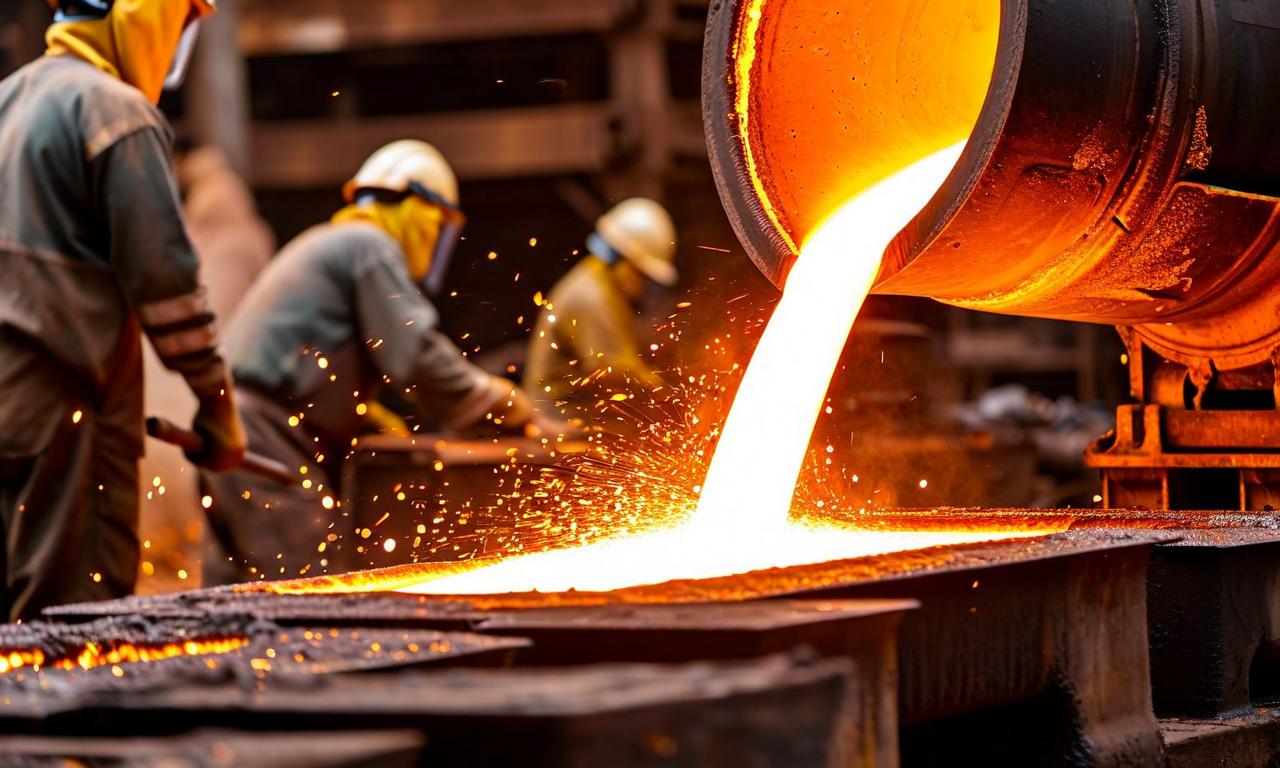
*this image is generated using AI for illustrative purposes only.
India's steel industry appears poised to weather the storm of U.S. tariffs, according to recent statements from the country's Steel Secretary. The high-ranking official expressed confidence that the impact of these tariffs on India's steel sector would be minimal, citing robust domestic growth as a key factor.
Domestic Growth Cushions Impact
The Steel Secretary highlighted that India's internal market provides ample opportunities for steel producers to expand their production capacity. This domestic-focused growth strategy could potentially insulate the industry from external pressures such as international tariffs.
U.S. Tariffs: A Minor Concern
Despite the global attention on U.S. trade policies, India's steel industry seems to be taking the tariffs in stride. The official's statement suggests that the country's steel producers are not overly concerned about potential loss of market share in the United States.
Industry Expansion Continues
The optimistic outlook from the Steel Secretary indicates that India's steel industry is on a growth trajectory. With sufficient demand within the country, steel producers are expected to continue expanding their production capacities, focusing on meeting domestic needs.
Implications for India's Economy
This resilience in the face of international trade challenges could be seen as a positive sign for India's overall economic strength. It suggests that the country's industrial base, particularly in crucial sectors like steel, is becoming increasingly self-reliant and less vulnerable to external economic pressures.
Conclusion
While the full implications of the U.S. tariffs on global steel trade remain to be seen, India's steel industry appears to be approaching the situation with confidence. The focus on domestic growth and expansion could potentially serve as a model for other industries facing similar international trade challenges.
